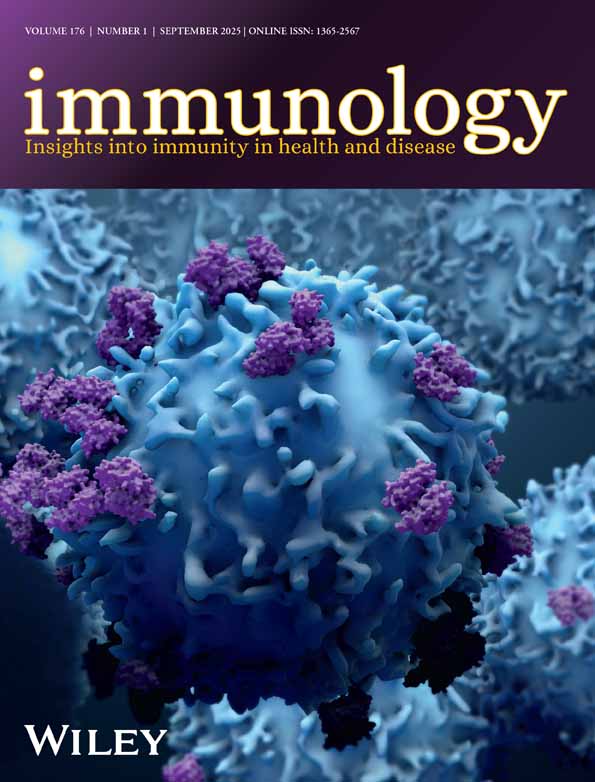Reversal of mucosal tolerance by subcutaneous administration of interleukin-12 at the site of attempted sensitization
Abstract
Oral feeding of proteins causes peripheral T-cell tolerance, as revealed by reduced delayed-type hypersensitivity (DTH) reactivity after immunization. This type of tolerance can be due both to passive T-cell anergy and active immunosuppression. Using ovalbumin-fed mice we studied whether putatively immunostimulatory cytokines could break this state of mucosal tolerance. Cytokines were administered locally at the site of attempted sensitization. It was found that neither interleukin-2 (IL-2), interferon-γ (IFN-γ) nor granulocyte–macrophage colony-stimulating factor (GM-CSF) could restore the response to immunization. In contrast, local administration of IL-12 at the site of attempted immunization resulted in full recovery of DTH reactivity. The dichotomy between the two Th1 stimulatory cytokines IFN-γ and IL-12 was also reflected by different effects on ovalbumin-specific antibody isotypes. Although both IFN-γ and IL-12 downregulated serum IgG1-levels in tolerant mice, suggesting decreased ovalbumin-specific Th2 function, only local administration of IL-12 led to increased serum IgG2a levels. These results support the view that potentiation of Th1 effector function is critical for reversal of mucosal tolerance.




